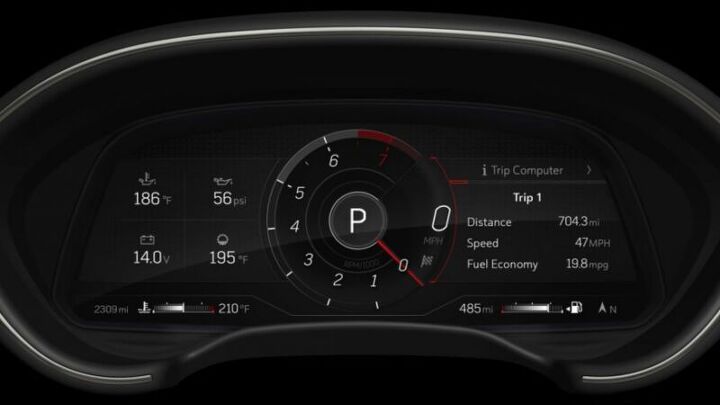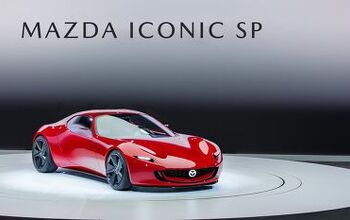How Many Vehicles Will the Chip Shortage Really Cost Us?

While the global semiconductor shortage is often reported as this out-of-nowhere surprise that has totally rattled smartphone and automotive manufacturers, 2020 was rich with signals that trouble was afoot. Global lockdowns forced factories to shut down, creating a lapse in demand in damn-near everything. By the time lines started firing back up, supply chains had become a disorganized mess. Nobody knew quite where to focus their efforts. But it was clear that everyone was going to be spending a lot more time indoors, resulting in an elevated need for the sort of components that go into mobile devices, television sets, personal computers, and other electronic gizmos.
Automobiles saw demand suppressed by around 15 percent (year-over-year) in 2020. However, the year ended with increased demand the industry figured would carry over into 2021. That, in conjunction with vehicles needing more semiconductor chips than ever to make sure they’re equipped with the latest features and perpetually connected to the internet, has automakers sweating. Practically every name in the industry has announced production shortfalls. But just exactly how many vehicles are we expected to lose from this?
Half a dozen factories in North America have already announced extended closures until the chip supply normalizes, leaving the region with automakers claiming a 239,000 vehicle deficit that AutoForecast thinks could end up as high as 402,000. European shortfalls are nearly as bad, with estimated losses eclipsing North America at 520,000 units.
As the global hub of semiconductor suppliers, Asia is assumed to see fewer problems. Chinese facilities are expecting to build 128,000 fewer vehicles than anticipated with the rest of the continent performing slightly better. Still, AutoForecast thinks the region could lose as many as 439,000 planned units.
Sadly, we don’t see this issue being totally resolved as supply chains improve. Chip demand is unlikely to go back down unless automakers become suddenly disinterested in having their products digitized (fat chance) and national security issues are starting to become a problem. China has been hungrily eyeing Taiwan forever and is starting to signal that it might make a move. While the big issue is the political fallout and probable war, Taiwan is one of the largest chip suppliers for our market. But even if things fail to reach that point, most are under the assumption that chip shortages will persist until local markets fulfill their own needs and are anticipating higher prices regardless.
[Image: General Motors]

A staunch consumer advocate tracking industry trends and regulation. Before joining TTAC, Matt spent a decade working for marketing and research firms based in NYC. Clients included several of the world’s largest automakers, global tire brands, and aftermarket part suppliers. Dissatisfied with the corporate world and resentful of having to wear suits everyday, he pivoted to writing about cars. Since then, that man has become an ardent supporter of the right-to-repair movement, been interviewed on the auto industry by national radio broadcasts, driven more rental cars than anyone ever should, participated in amateur rallying events, and received the requisite minimum training as sanctioned by the SCCA. Handy with a wrench, Matt grew up surrounded by Detroit auto workers and managed to get a pizza delivery job before he was legally eligible. He later found himself driving box trucks through Manhattan, guaranteeing future sympathy for actual truckers. He continues to conduct research pertaining to the automotive sector as an independent contractor and has since moved back to his native Michigan, closer to where the cars are born. A contrarian, Matt claims to prefer understeer — stating that front and all-wheel drive vehicles cater best to his driving style.
More by Matt Posky
Latest Car Reviews
Read moreLatest Product Reviews
Read moreRecent Comments
- MaintenanceCosts E34 535i may be, for my money, the most desirable BMW ever built. (It's either it or the E34 M5.) Skeptical of these mods but they might be worth undoing.
- Arthur Dailey What a load of cow patties from fat cat politicians, swilling at the trough of their rich backers. Business is all for `free markets` when it benefits them. But are very quick to hold their hands out for government tax credits, tax breaks or government contracts. And business executives are unwilling to limit their power over their workers. Business executives are trained to `divide and conquer` by pitting workers against each other for raises or promotions. As for the fat cat politicians what about legislating a living wage, so workers don't have to worry about holding down multiple jobs or begging for raises? And what about actually criminally charging those who hire people who are not legally illegible to work? Remember that it is business interests who regularly lobby for greater immigration. If you are a good and fair employer, your workers will never feel the need to speak to a union. And if you are not a good employer, then hopefully 'you get the union that you deserve'.
- 28-Cars-Later Finally, something possibly maybe worth buying.
- EBFlex The simple fact is very small and cheap ICE vehicles have a range thats longer than all EVs. That is the bar that needs met. And EVs cannot meet that.Of course range matters. But that's one element of many that make EVs completely ineffective at replacing ICE vehicles.
- Wolfwagen I like the exterior mods short of the satellite dish. Put a normal interior in it and they could have sold it as some sci-fi movie trim


































Comments
Join the conversation
It is time for Uncle J to send air carriers to South Chia sea.
Used vehicle prices will go up with less new vehicles available, less vehicles traded in because of lower miles driven during the pandemic, and more people buying vehicles instead of riding mass transit. As for more wires on today's vehicles versus 40 or 50 years that is true but even if the manufacturers eliminated many of the wires they would be replaced with wireless technology which requires more chips and thus a larger shortage in chips.